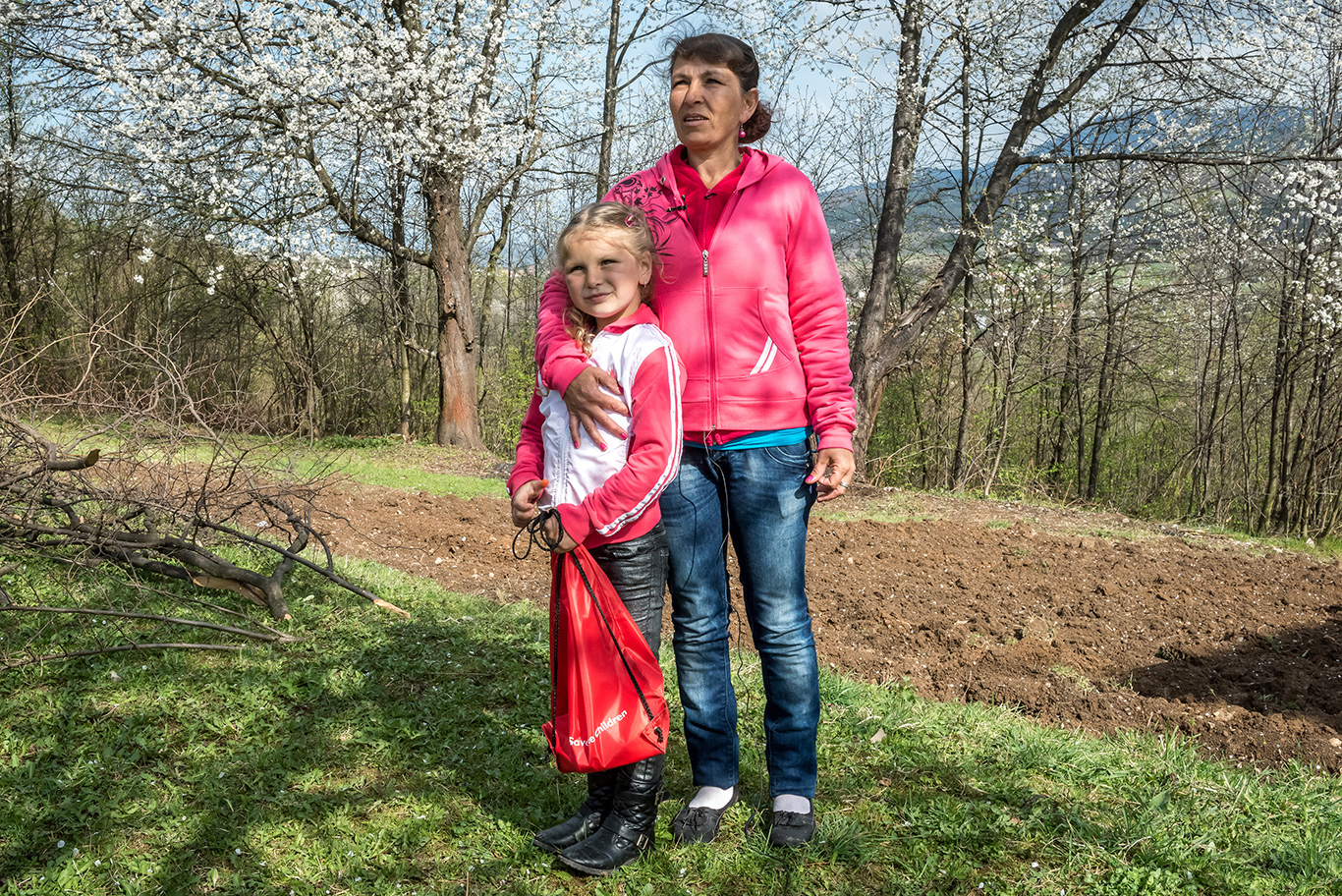 North West Balkans
North West Balkans
Languages
Keeping children in school – making sure they have a future

Fighting the giants – poverty, discrimination, social exclusion
Being the biggest minority in Bosnia and Herzegovina (B-H), Roma people are also the biggest group continuously facing prejudices, discrimination and social exclusion. Research shows Roma life expectancy is still below the European average. Most of them do not complete even the primary education, very few finish high school and even fewer obtain university education. Roma associations explain this situation with inefficient implementation of the national R9o0ma Action Plan, inadequate education and social policies, poverty and poor social and economic circumstances.
Life in small communities is no different. Bilalovac is a village in central Bosnia, with just over 1100 residents – including 400 Roma, mostly living in a small community called Hrastovi. Less than 50 Roma children are enrolled to primary school in this village. Poverty is certainly the main reason children are not attending school, but there are other reasons too. Many families temporary move to the EU countries where they engage in heavy manual labour, often illegal, underpaid and hazardous, in order to earn money to support their families rest of the year. They bring children with them, end event if they attend school in other countries, verification procedures in B-H are extensive and costly, so their children are left behind their peers. There are also parents who don’t see the value in their children completing school beyond first grade when they learn literacy and numeracy basics, as almost no one will give them work even with higher education diplomas.
Making a difference
Dalia*is a brave 7-year old, already helping her mother to cope with their difficult leaving conditions. It’s only two of them, and her mother Zerina*– illiterate and with hearing impairment – is doing her best to put food on their table and keep the roof above their heads. Zerina has no income and her biggest sorrow is when she has to send her daughter to school empty handed. “I have nothing to give her. I am illiterate, I can’t hear well and often I don’t understand what people are saying to me. But she understands and explains it to me, she is smart. My mother didn’t send me to school and today I don’t even know how to write my name. That’s way I’m sending Dalila to school, I don’t want her to be illiterate, she will learn. I can’t help her with learning to write, but she is doing it on her own, she does not want to be left behind,” Zerina tells us proudly. “I am sorry for our difficult life because of her. I raised her on my own, no one gave my anything. For her, I go from house to house and beg for any help”.
Dalila was enrolled to a first grade in primary school Kiseljak 1 – Bilalovac in September 2016. Since this school is one of the partner schools Save the Children is working with through implementation of the project “Inclusive and Quality Education for Roma Girls and Boys”, Dalila received basic school material and receives a school snack every school day. Her mother is also included in workshops aimed at strengthening parenting capacities.
This is a three-year project implemented since 2016 in five regions in B-H and three in Serbia. It tackles issues such as exclusion, discrimination and difficulties in access to basic services – education, health and social welfare – for Roma children and their families.
The aim of the project is to ensure equal conditions for Roma girls and boys who are out of the school system or who are in risk of school drop-out, in a way that they are given support within the education system with books, school lunch, transport and with additional possibility of professional support from the school personnel. With this project, Save the Children and partner schools and educations institutions aim to increase access to quality inclusive pre-school and primary school education for the most vulnerable girls and boys and develop models that will prevent their early school dropout and social exclusion.
First grade teacher Zekira Zrno says the school drop-out rate is slowly reducing. “It used to be much worse, children would leave school even while being in first grade. Today, their parents have a better understanding of why they need school, they visited other countries, they know now they need to learn foreign languages or computer skills…”
Through the project implementation, accelerated learning program is being provided for children left behind in order to compensate for the missed time in school so that children can swiftly return to the regular education program. Project also includes equipping selected schools to increase accessibility and engagement possibilities for Roma children in order to ensure their better development and progress. In addition, project activities include support to parents through specifically designed training programs that tackle their needs, including life skills and positive parenting, with focus on young mothers in Roma communities.
Progress with engagement of all stakeholders
Dalila is now preparing for a second grade. Her prospects are somewhat brighter with support she is receiving in school. School materials and school snacks less to worry about, she can focus on achieving good results and hope for a better future – the one with solid employment and better life for her and her mother.
Zerina will also benefit from regular parents’ meetings that contributed to better understanding within the community and with school staff, resulting in mutual support – psychological and sometimes administrative or materials as well.